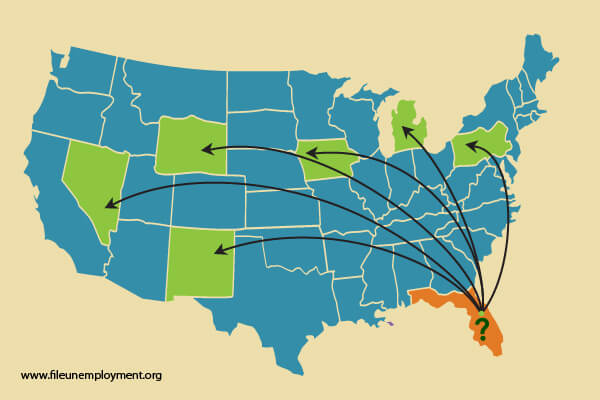Monetary compensation in the United States for unemployment is guided by laws and frameworks prescribed by the Department of Labor and operated independently by each state. The Unemployment Payments network is perhaps a perfect example of an all-inclusive social security system in a federal setup. You have every right to apply for benefits from a new state. However, the unemployment laws of the former state would still govern how your benefit payment calculations are determined.
What is Unemployment Insurance in the U.S?
Weekly compensation is paid to claimants who’ve lost their jobs due to involuntary reasons such as layoffs. You can receive up to 26 weeks of regular unemployment compensation based on income earned during the base or alternative base period and other applicable criteria. Some states may also provide additional weeks of benefits, although the Emergency Unemployment Compensation(EUC) is now redundant.
In exchange for the dole, you have to fulfill some conditions, such as making the required job searches during a given week and accepting a suitable job offer that may come your way. One of the most common concerns we hear from claimants who wish to move to another state and seek job opportunities is the transfer of benefits from the present state to the state where the person is moving.
Can I Transfer Unemployment Benefits From One State to Another?
Yes, you can. Although your previous employer would have remitted unemployment taxes to the state where your employment was based, you can get them transferred to the new state to which you’re moving. Each state is a member of the Interstate Reciprocal Benefit Payment Plan, which provides the required network for hassle-free transfer of your claim file to the new state. You must note that once transferred, the laws governing the compensation system in the new state will apply to your weekly claims that can affect the claim amount and other determinants.
Once the file has been transferred, you will need to start making the required job searches as per the new state rules and claim weekly benefits to the extent of availability. Since this is an intrastate activity, you may have to wait for a stipulated time before starting to make claims again.
How to Transfer UI Benefits?
Firstly, it is crucial to contact the Unemployment Office in your current state and let them know about your intention of moving to another state. Ask for specific paperwork that you may have to fill with the present state of claims.
Once you’ve made an official communication and moved to the next state, call the Unemployment Office. Inform them about your move and that you will be claiming the compensation and initiate a transfer.
Post confirmation from your new state, start filing weekly claims just the way you did before. You will be required to provide relevant paperwork such as SS and Address Proof in the new state. Ensure the availability of all the required paperwork.
A Word of Advice
Moving the benefits from one state to another is an option that is available in the system. Before initiating one, consider the feasibility in terms of the various challenges surrounding it before making a decision. A few concerns can be –
- It may involve intensive paperwork since your file is moved from one state to another. You will be required to deal with both states until the completion of the transfer.
- The wait time can be testing, during which you may not be able to stake a claim in any of the states.
- Once the transfer is complete, the claims you make will be subject to the rules and conditions of the new state. Monetary benefits may or may not be of the same value you have received earlier.
Since it’s all virtual (online), you may still consider the option of continuing your claims from the base state even if you move to a different one until completion. As a responsible claimant, you must inform the base state about your movement to ensure there are no hassles.

Comments are closed.